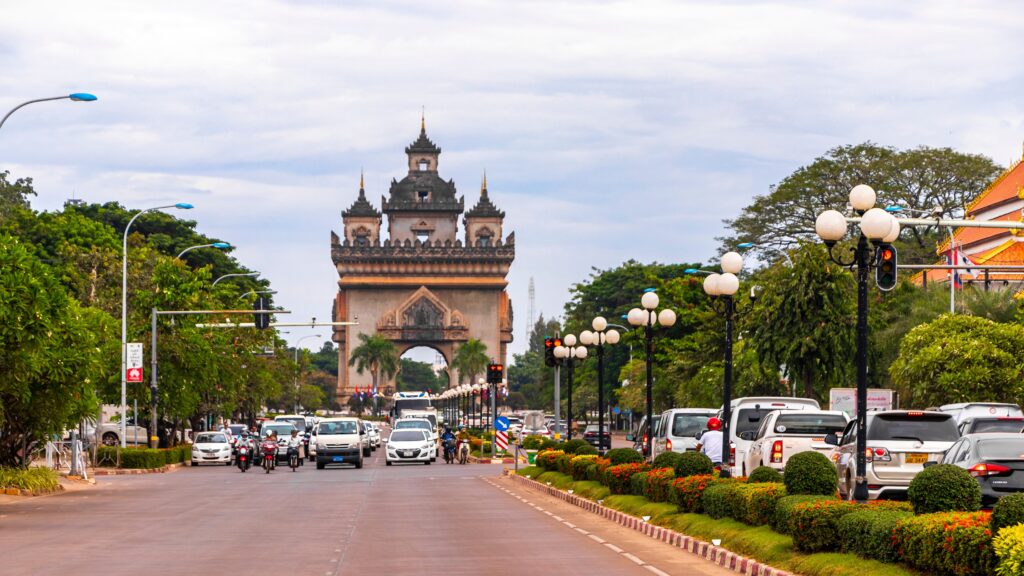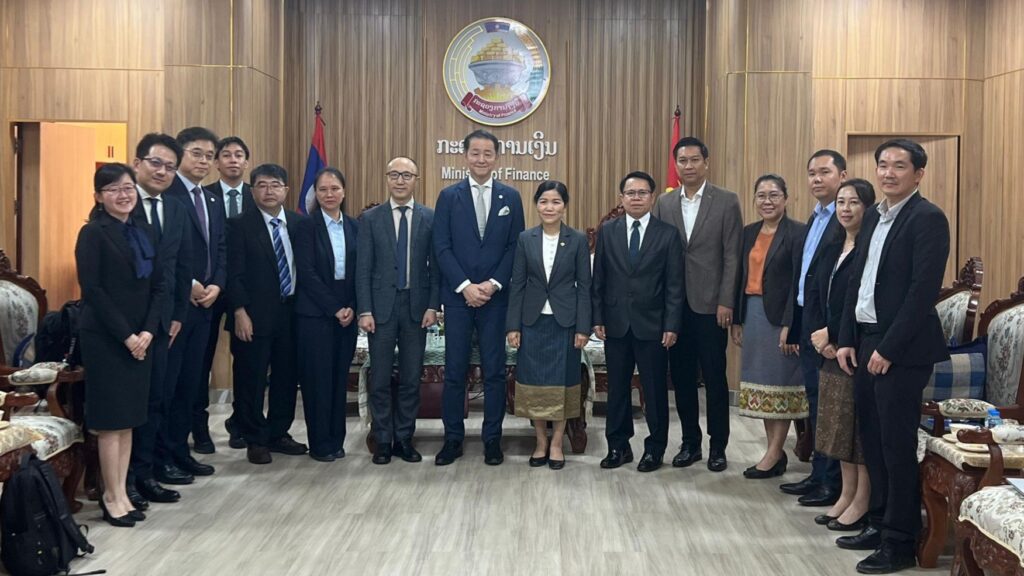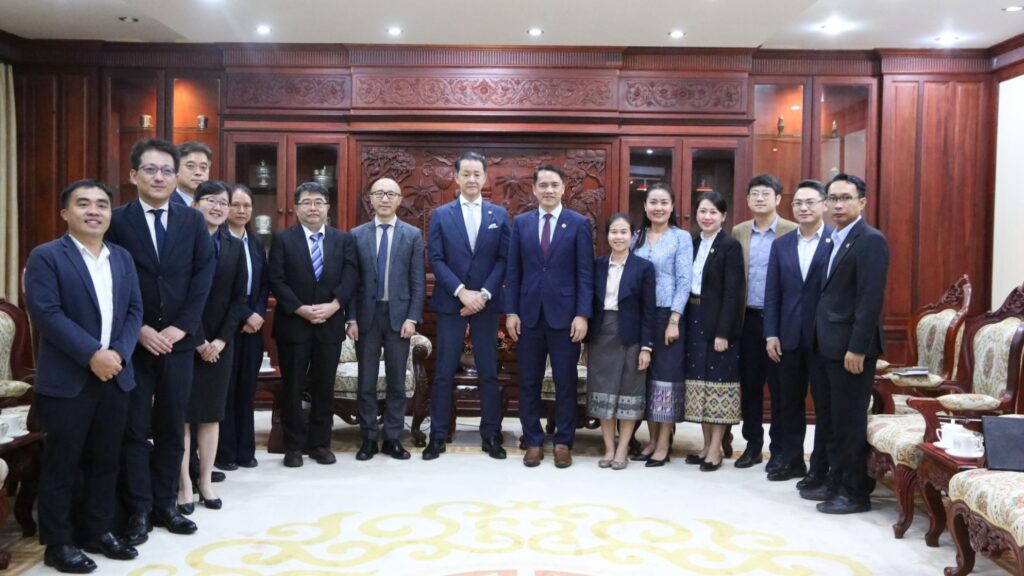
SINGAPORE, August 12, 2025 – Macroeconomic conditions in Lao PDR have improved. Inflation has moderated to single-digit levels, and the kip has stabilized following recent policy reforms. These improvements reflect the government’s efforts in monetary tightening, fiscal consolidation, and foreign exchange regulation enforcement.
However, the outlook remains clouded by concerns over external debt sustainability amid rising global uncertainties. Continued macroeconomic stabilization efforts and accelerated structural reforms are essential to preserve stability and bolster growth prospects.
This preliminary assessment was made by the ASEAN+3 Macroeconomic Research Office (AMRO) following its Annual Consultation Visit to Lao PDR from July 16 to 30, 2025.
The mission was led by AMRO Deputy Group Head Cuc Thi Kim Nguyen, with participation from AMRO Director Yasuto Watanabe and Chief Economist Dong He in policy meetings. Discussions focused on the country’s economic outlook, risks and challenges, and policy priorities to navigate the growing domestic and external headwinds.
Recent developments and outlook
“Despite recent macroeconomic improvements, Laos continues to face significant challenges related to external debt repayments amid global trade uncertainties,” said Nguyen. “Sustaining macroeconomic stabilization with a clear and credible strategy to restore medium-term debt sustainability is critical.”
Looking ahead, the economy is expected to grow by 4.4 percent in 2025 and 4.2 percent in 2026, led by robust electricity generation and continued expansion of the services sector.
Inflation, after peaking at 31 percent in 2023, fell to single digits in 2025 and is expected to moderate further in 2026.
The kip has stabilized, with the gap between the parallel and official exchange rates closing following the launch of a market-based digital platform enabling direct foreign exchange trading among individuals and small businesses.
A record-high fiscal surplus was posted in 2024, with another surplus projected for 2025, in line with the government’s five-year consolidation goals. These fiscal improvements have contributed to a decline in the public debt-to-GDP ratio from its peak in 2023.
Stronger exports and services, along with continued debt suspension to a major creditor, and mandatory foreign exchange repatriation and conversion, improved the overall balance of payments. Foreign exchange reserves increased to USD2.6 billion as of June 2025, sufficient to cover 3.1 months of imports.
Risks, vulnerabilities, and challenges
External debt sustainability remains a key concern, reflecting substantial debt servicing obligations and limited financing options. The government continues to rely on debt suspension and short-term foreign currency bond issuances to domestic banks to meet its financing needs. This approach risks adding liquidity pressures to the banking system and further constraining credit growth, which is already limited by banks’ weak asset quality and thin capital buffers.
Exchange rate pressure persists from elevated external debt repayments. If such pressures intensify, they could, in turn, revive inflation expectations.
While the direct exposure to US trade policy is limited, a sharp slowdown in key trading partners, especially China, which accounts for 25 percent of Lao exports and 60 percent of foreign direct investment inflows, could have considerable spillover effects on the Lao economy.
Policy recommendations
To ensure medium-term debt sustainability, the authorities are advised to intensify fiscal and debt management efforts. A comprehensive debt restructuring plan is critical, as the current reliance on ad-hoc debt suspension and short-term financing is unsustainable. Fiscal consolidation should proceed through enhanced revenue mobilization and efficient public spending, anchored by a credible medium-term fiscal framework. Over the longer term, the development of a domestic bond market would help diversify financing sources and reduce external vulnerabilities.
Reforms of state-owned enterprises (SOEs) are equally essential. AMRO supports the adjustment of electricity tariffs to cost-recovery levels, which will strengthen the financial position of SOEs, the government, and domestic banks. Meanwhile, targeted assistance could be considered to cushion vulnerable households from the impact of higher electricity tariffs on their purchasing power.
AMRO recommends that the central bank maintain a tight monetary policy stance to dampen potential inflationary pressures and safeguard exchange rate stability. Ongoing implementation of foreign exchange measures, coupled with clear and consistent communication, will be key to supporting reserve accumulation and building investor confidence. Greater flexibility in the reference exchange rates would also help align commercial bank rates more closely with prevailing market conditions.
Further efforts are also needed to strengthen the banking sector. Addressing weak asset quality and thin capital buffers should be prioritized, alongside enhancements to risk management practices and supervisory frameworks in line with international standards.
To bolster medium-term growth prospects, the government is encouraged to accelerate structural reforms aimed at promoting higher value-added production and diversify the economic base. These efforts would enhance the country’s resilience to global commodity price fluctuations and climate-related shocks.
The AMRO team would like to express its appreciation to the Lao authorities and other stakeholders for their cooperation and valuable insights during the mission.
About AMRO
The ASEAN+3 Macroeconomic Research Office (AMRO) is an international organization established to contribute toward securing macroeconomic and financial resilience and stability of the ASEAN+3 region, comprising 10 members of the Association of Southeast Asian Nations (ASEAN) and China; Hong Kong, China; Japan; and Korea. AMRO’s mandate is to conduct macroeconomic surveillance, support regional financial arrangements, and provide technical assistance to the members. In addition, AMRO also serves as a regional knowledge hub and provides support to ASEAN+3 financial cooperation.

AMRO Director Yasuto Watanabe, Chief Economist Dong He, mission chief Thi Kim Cuc Nguyen and the mission team met with the Deputy Minister of Finance of Lao PDR Phonevanh Outhavong and senior officials from the Ministry of Finance.

AMRO Director Yasuto Watanabe, Chief Economist Dong He, mission chief Thi Kim Cuc Nguyen and the mission team met with Deputy Governor Soulysak Thamnuvong and senior officials from the Bank of the Lao PDR.
